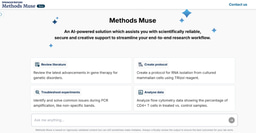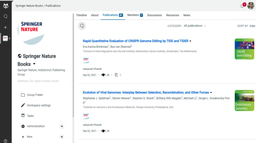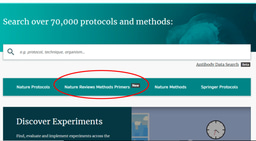SN Experiments Updates: Streamlining Content Access
Published in Protocols & Methods

From its launch, Springer Nature Experiments was a ‘standalone platform’ not integrated with any other Springer Nature identification or entitlement systems; Experiments was initially set up as a pure discoverability platform. A notable downside of this arrangement was that (frustrated) users would sometimes hit paywalls to content they should have been able to access. Optimizing content access became an especially acute issue in 2020, with the huge, pandemic-induced shift to remote working. Integrating the Experiments platform with a system that seamlessly identifies and authenticates users would directly address issues around content access.
As part of continuing efforts to support remote working, the Experiments platform has implemented a system which allows for users to be identified and authenticated based on IP-range. In practice, what this means is that users who download or view content via the Experiments platform should no longer have restricted access so long as they are visiting from a recognized IP range.
While IP-based authentication is widely used, it does have an inherent limitation: one must visit with a recognized IP range. There are many other non-IP based authentication systems being used and in future work, the SN Experiments Team will explore how to incorporate non-IP based authentication to ensure seamless access to Protocols and Methods content via the Experiments platform.
For any questions or feedback, don't hesitate to contact the Springer Nature Experiments Team: experiments@springernature.com.





Please sign in or register for FREE
If you are a registered user on Research Communities by Springer Nature, please sign in